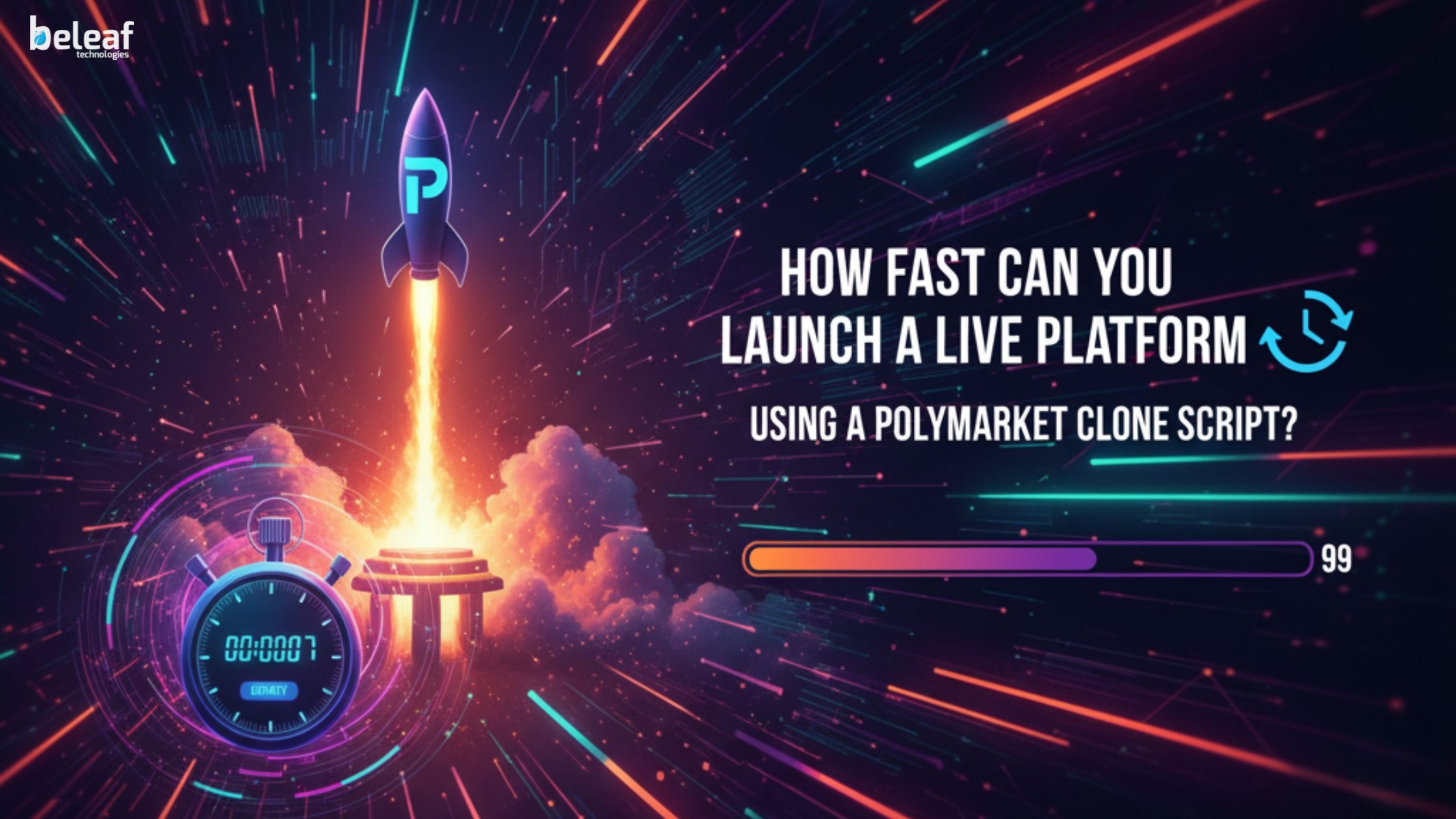In the evolving world of blockchain-based prediction markets, speed matters. Entrepreneurs often ask how quickly they can move from an idea to a fully functional live platform. With a Polymarket clone script, the development timeline is significantly reduced compared to building a platform from scratch. But “how fast” depends on your goals: whether you want a simple MVP, a branded platform with custom features, or a full-scale, production-ready launch.
Let’s break it down step by step.
Why Entrepreneurs Turn to Clone Scripts
A Polymarket clone script is essentially a ready-made software package designed to replicate the core functions of a prediction market. It includes essential features such as user registration, wallet integration, event creation, and real-time trading. Instead of coding everything from zero, you begin with a working base.
The main advantage? Time efficiency. You’re not reinventing the wheel. Instead, you can focus your efforts on customization, user experience, compliance, and scaling.
Stage One: Launching an MVP Quickly (1–2 Weeks)
If your aim is simply to validate an idea or showcase a prototype to investors, a Polymarket clone script can get you there in as little as one to two weeks.
Here’s what goes into that rapid timeline:
-
Deploying the ready-made script on a server.
-
Adding your branding (logo, theme colors, and landing page copy).
-
Configuring a limited set of markets to demonstrate functionality.
At this stage, speed is the top priority. The trade-off is that your MVP will look and feel very similar to other platforms built on clone scripts, and it won’t yet be hardened for large-scale use.
Stage Two: A Custom, Branded Platform (3–6 Weeks)
Once you decide to move beyond a demonstration product, the timeline extends to three to six weeks. This period allows you to:
-
Customize user flows and the interface.
-
Integrate wallets or multiple payment options.
-
Set up your own categories of prediction markets.
-
Add security features such as two-factor authentication.
This stage results in a platform that looks like yours rather than a generic replica. It’s fast enough to get early users on board while giving you room to learn from their behavior and feedback.
Stage Three: Full-Scale Production Launch (6–12+ Weeks)
A serious production-ready platform requires more time. Expect six to twelve weeks or longer depending on the complexity of your requirements. Key factors include:
-
Security audits – Prediction markets deal with real money, so smart contracts and trading logic must undergo professional review.
-
Regulatory compliance – Implementing KYC, AML checks, and terms of service tailored to your jurisdiction can take weeks.
-
Infrastructure scaling – Load testing, database optimization, and server redundancy ensure your platform can handle real traffic.
-
Advanced integrations – Connecting multiple blockchain networks, payment gateways, or external oracles requires careful coding and testing.
This stage transforms your project from a functional platform into a trustworthy product ready for public adoption.
Factors That Influence the Timeline
Even with a Polymarket clone script, not all launches move at the same pace. Timelines can stretch or shrink based on:
-
Customization needs – Minimal branding is fast; deep UX and feature redesigns take longer.
-
Team expertise – An experienced development team that already knows prediction market mechanics can accelerate the process.
-
Legal preparation – Waiting for clarity on regulations can hold back a launch.
-
Third-party dependencies – Payment providers, auditors, or hosting partners can speed things up or slow things down.
Being realistic about these variables helps you plan more effectively.
Why Rushing Can Backfire
While it’s tempting to push for the shortest possible timeline, cutting corners often leads to problems later. A lightly tested MVP may be fine for a closed demo, but rushing to launch a public platform without audits or compliance checks can harm both reputation and finances.
Think of speed as a spectrum: the faster you go, the more you limit features and safeguards. The smarter approach is to balance speed with due diligence.
A Smart Roadmap for Entrepreneurs
Here’s a simple roadmap for launching using a Polymarket clone script:
-
Week 1–2: Set up your MVP with basic branding and limited functionality.
-
Week 3–6: Add core customizations, wallet integrations, and enhanced security.
-
Week 6–12+: Conduct audits, integrate compliance features, and scale infrastructure for production.
By following this roadmap, you can move quickly without overlooking the essentials.
Final Thoughts
The speed of launching with a Polymarket clone script depends on your goals. If you want a quick MVP, you can live in as little as a week or two. For a branded platform with useful features, expect several weeks. For a secure, compliant, and production-ready platform, plan for a few months.
The key takeaway is that clone scripts save you time often cutting development cycles in half but real success comes from how you customize, secure, and scale your platform after deployment. In 2025’s competitive landscape, the winners won’t just be the fastest to launch; they’ll be the ones who build with both speed and responsibility.


